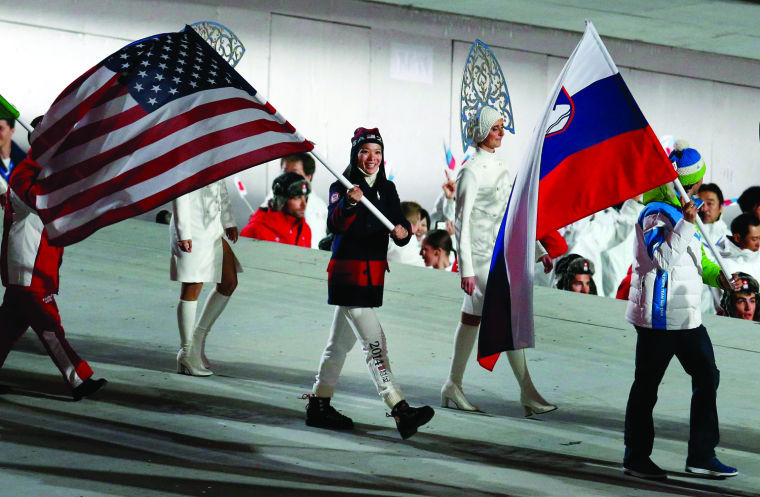Winners, losers of the 2014 Sochi Olympic games
The 2014 Sochi Olympics wrapped up on Feb. 23, with Russia leaving as the winner with 33 total medals, including 13 gold. The United States finished second with an overall count of 28 medals, nine of which were gold. However, with medal count aside, the 2014 games created many winners and losers for various reasons. Let’s recap:
Winner: BMW automobiles
BMW made new sleds for the U.S. team and they turned out to be, well, pretty darn fast. The men’s two-man bobsled team ended a 62-year medal drought, earning bronze, while the women captured a silver and bronze of their own.
Winner: Alpine Skier Ted Ligety
After his success at the 2014 games, Ligety is now being listed along with the greatest American skiers, such as Phil and Steve Mahre, Tommy Moe and Bode Miller. Along with Andrea Mead Lawrence, Ligety is the only one to win two Olympic gold medals in skiing. Ligety has won four of the last six season titles in giant slalom and has two gold medals. With this feat, Ted Ligety is now in the conversation as best-ever American skier
Winner: Canada Hockey
The men’s and women’s hockey teams for Canada were both able to walk away with gold medals. The U.S. women were up 2-0 with only a few minutes left in the gold medal game, but quickly gave up two goals, and would fall 3-2 in overtime to Canada. Then, in the men’s semi-final game, U.S. men lost 1-0 to Canada. Canada would go on to dominate Sweden 3-0 in the gold medal game.
Loser: Russia
Canada’s gold medals in Hockey not only affected the U.S., but Russia as well. Not only did Russian hockey star and National Hockey League (NHL) player Alex Ovechkin not win Gold in his home country, but he had to watch rival Sidney Crosby, of the Pittsburgh Penguins, take home the gold instead.
It is also worth mentioning that the conditions the athletes, media and others lived in during the Olympics were not up to par. With last minute construction still taking place on housing structures and athletic facilities, the athletes had to deal with contaminated water, unfinished paths and courses, non-flushing toilets and even insects in their food. Not to mention, there was the constant threat of suicide bombers and terrorist activity in the region. These conditions were well publicized and really stole some of the luster for the winter games.
In the end, the Sochi Olympics had an unforeseen outcome for different countries. Some found great success, and others not so much. Despite some tough losses mentioned above, the U.S. still left Sochi with second place in the overall medal count, and can look forward to Pyeongchang, South Korea for the 2018 Winter Olympics.







